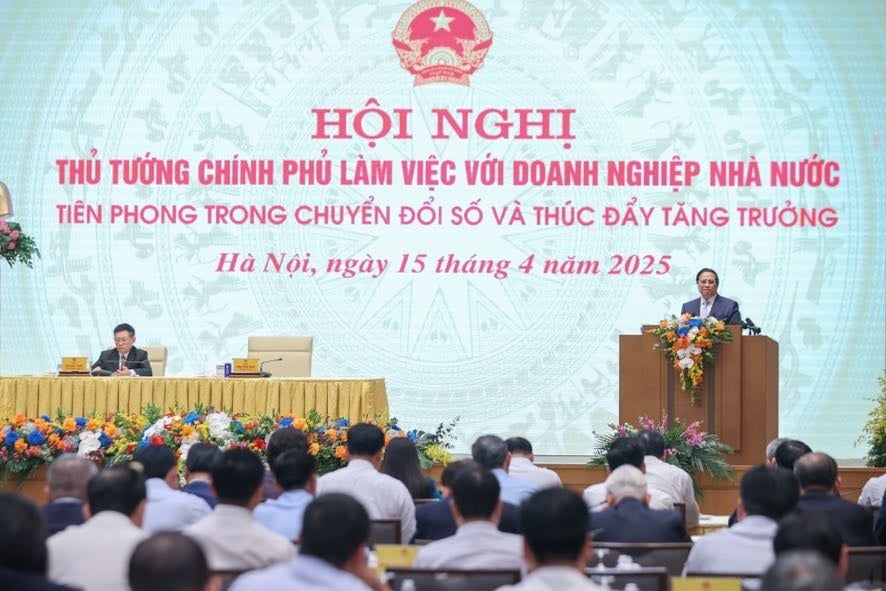 |
| Conference of the Prime Minister working with State-owned enterprises on April 15 |
Prime Minister Pham Minh Chinh chaired the conference. Also attending were Deputy Prime Minister Ho Duc Phoc, leaders of ministries, sectors and 68 typical state-owned enterprises (SOEs) operating in key sectors of the economy.
Will evaluate the level of digital transformation of state-owned enterprises at the end of the year
Speaking at the conference, Deputy Minister of Science and Technology Pham Duc Long said that in recent times, state-owned enterprises operating in many fields such as energy, telecommunications, finance, etc. have achieved some successes in digital transformation and achieved impressive growth. However, many state-owned enterprises currently have low labor productivity and production efficiency, and digital transformation is fragmented.
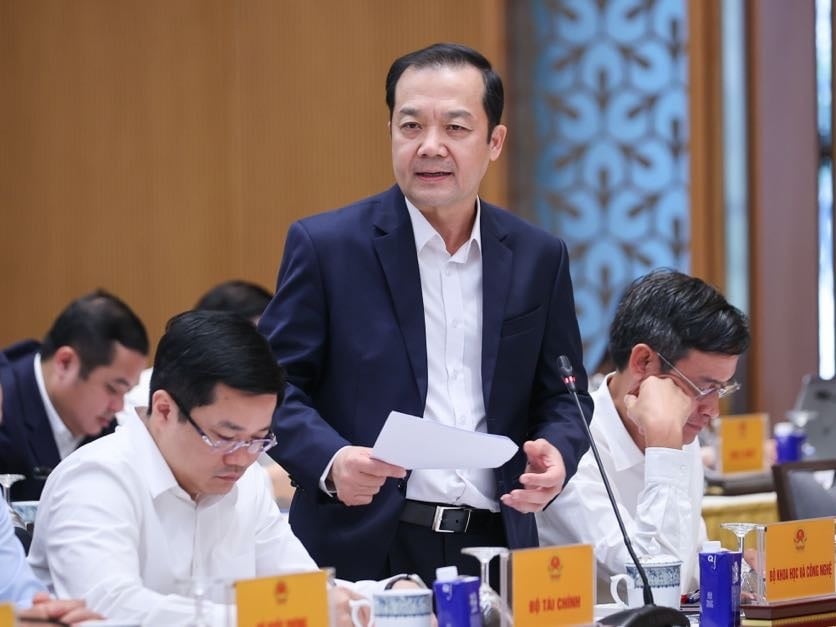 |
| Deputy Minister of Science and Technology Pham Duc Long speaks - Photo: VGP/Nhat Bac |
To accelerate digital transformation, the Deputy Minister of Science and Technology raised 5 issues: First, digital transformation requires the role of the leader. The formula for digital transformation is 70% change, 30% technology. The application of information technology is popular, anyone can do it, but digital transformation depends largely on the will of the leader, because only the leader can decide to transform. However, in addition to directing, the leader must also directly do it and be directly responsible. This is the spirit of Resolution 57.
Recently, corporations and state-owned companies have implemented digital transformation, but sometimes it is still a trend, not a reality. Digital transformation is innovation, creating new models, there are risks, if the leader does not directly do it, he will not succeed.
Second, digital transformation is reflected in data. Data is very important, without data, all technology is meaningless. However, currently, the awareness of building data in businesses is lacking, especially state-owned enterprises. Some businesses have been aware of building data, thereby applying artificial intelligence, improving labor productivity.
Third, digital transformation needs a digital technology company to accompany it. Because digital transformation is a process, not a stage. Digital transformation is the change, continuous improvement of processes and application of technologies to create new business models and new products. Currently, businesses basically make investment plans, investment is a fixed problem, when the investment is completed, if we want to change or modify, we have to make a project to adjust the transformation. Therefore, there is no flexibility.
Therefore, state-owned enterprises should choose a digital technology enterprise to accompany them. State-owned enterprises hire digital technology enterprises to invest in continuously improving operating systems to meet the innovation requirements of enterprises, convenient for users and customers. All issues related to technology, operation, improvement... are assigned to digital transformation enterprises; while state-owned enterprises only focus on innovation to create new products, new services, new models.
Fourth, digital transformation is transforming business models to create new growth. Growth of over 10% cannot come from expanding scale, but must fundamentally come from business model breakthroughs. State-owned enterprises need to transform from traditional production to digital enterprises, based on science and technology. Enterprises should come up with models to make breakthroughs and set out problems for digitally transformed enterprises to solve those problems. The Ministry of Science and Technology will act as a connecting center between state-owned enterprises that need to transform and need to solve problems with digital transformation.
On Thursday, September 20, 2024, the Prime Minister issued Decision No. 1012/QD-TTg on the Action Plan for digital transformation of the Government's and the Prime Minister's direction and administration activities online and based on data for the period 2024 - 2025, with a vision to 2030.
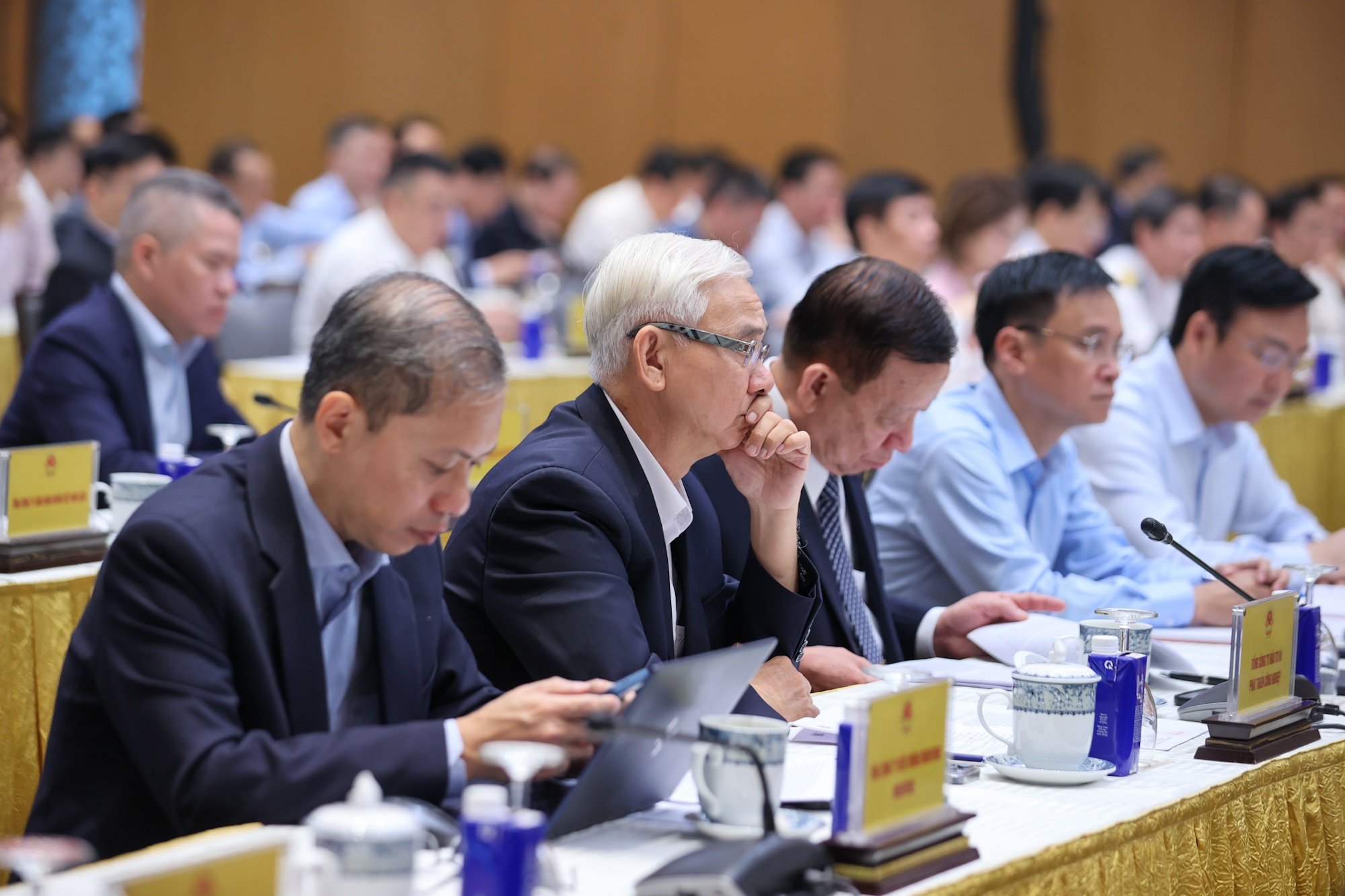 |
| Businesses attending the Conference - Photo: VGP/Nhat Bac |
The Ministry of Science and Technology will organize an assessment of the digital transformation level of SOEs at the end of the year. In addition, as the standing agency of the Government implementing Resolution 57, the Ministry of Science and Technology is committed to accompanying SOEs in digital transformation. By continuing to create institutions and policies for SOEs and ensuring competitive advantages, connecting the innovation ecosystem, creating supply and demand between SOEs and businesses, schools and institutes implementing digital transformation. The Ministry of Science and Technology will support SOEs in applying and commercializing innovation results.
Meet capital needs, ensure stability of the monetary market and exchange rates
Speaking at the conference, Governor of the State Bank of Vietnam Nguyen Thi Hong said: To promote high economic growth, capital requirements are very important. With the characteristics of Vietnam, the investment capital needs of enterprises are largely dependent on credit capital from the banking system. Therefore, from the beginning of the year, the State Bank of Vietnam has set a credit growth target of 16% this year. This is a high level compared to recent years and also immediately notified credit institutions from the beginning of the year so that they can be proactive in implementing their operational and business plans. By the end of the first quarter of 2025, credit growth will be 3.93% compared to the end of 2024 and an increase of 18% over the same period. This is a high level compared to the same period last year (only an increase of 1.34%).
The Governor said that the State Bank will closely monitor and may adjust credit growth if inflation is well controlled. In particular, recently, the Prime Minister directed the banking sector to build a VND500,000 billion package to support businesses investing in infrastructure and digital technology.
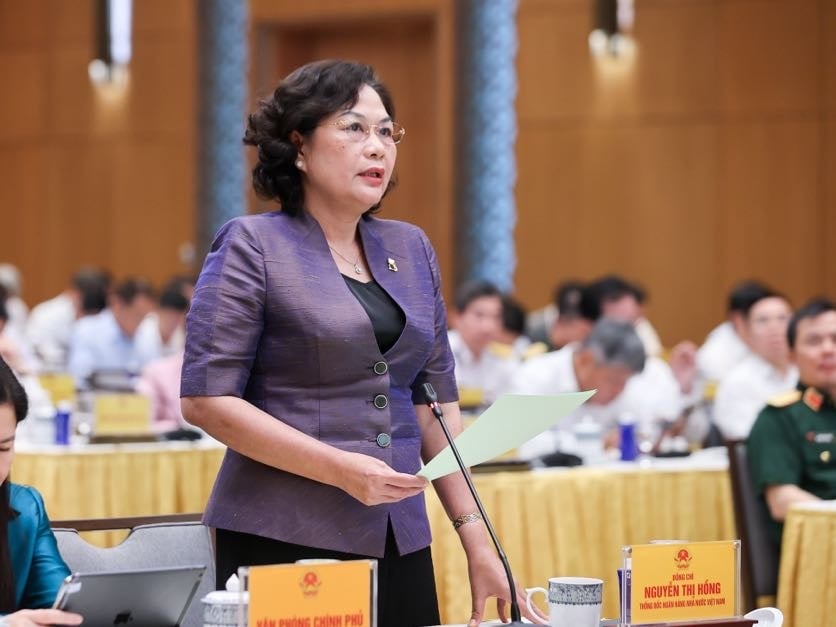 |
| Governor of the State Bank of Vietnam Nguyen Thi Hong speaks at the Conference - Photo: VGP/Nhat Bac |
“We have worked with banks and sent documents to the Ministry of Science and Technology, the Ministry of Construction and the Ministry of Industry and Trade to compile a list of key projects for synthesis and next steps. We hope that ministries and branches will pay attention and give their opinions to the State Bank soon,” the Governor informed.
According to the Commander of the Banking sector, if the economy wants to grow rapidly while financial resources are limited, promoting innovation and digital transformation is the top priority and the main driving force. This is the guiding spirit of Resolution 57. The State Bank of Vietnam also thoroughly understands this Resolution. Over the past time, the banking system has been one of the leading ministries and sectors in digital transformation. Along with promoting digital transformation, it is necessary to deploy solutions to ensure security, safety and information confidentiality.
“To promote digital transformation, we agree with the opinion of the Deputy Minister of Science and Technology that there must be a data ecosystem. Recently, the Ministry of Public Security has developed Project 06 on population data. I believe that in the coming time, if this database is enriched, it will be very good for the digital transformation process of the economy in general and the banking industry. In particular, it is necessary to build a data ecosystem for businesses to promote digital transformation,” said the Governor.
To create a stable business environment for businesses and people, including state-owned enterprises, the issue of monetary policy management to help control inflation and stabilize the currency and foreign exchange markets in the current context is extremely challenging. The State Bank is determined and closely monitors the world and domestic situation to be able to manage appropriate solutions with reasonable doses and timing, helping to stabilize the situation.
Regarding the foreign currency needs of large projects, the SBV also pays great attention. For example, last year, state-owned commercial banks also financed the Long Thanh Airport project with 1.8 billion USD. "We will balance the overall capacity of the system's foreign currency resources, so that we can meet capital needs while also ensuring exchange rate management and stabilizing the currency and foreign exchange markets," the Governor said.Source: https://thoibaonganhang.vn/nganh-ngan-hang-no-luc-ho-tro-tang-truong-va-chuyen-doi-so-162800.html


![[Photo] Prime Minister Pham Minh Chinh receives Mr. Jefferey Perlman, CEO of Warburg Pincus Group (USA)](https://vstatic.vietnam.vn/vietnam/resource/IMAGE/2025/4/18/c37781eeb50342f09d8fe6841db2426c)




















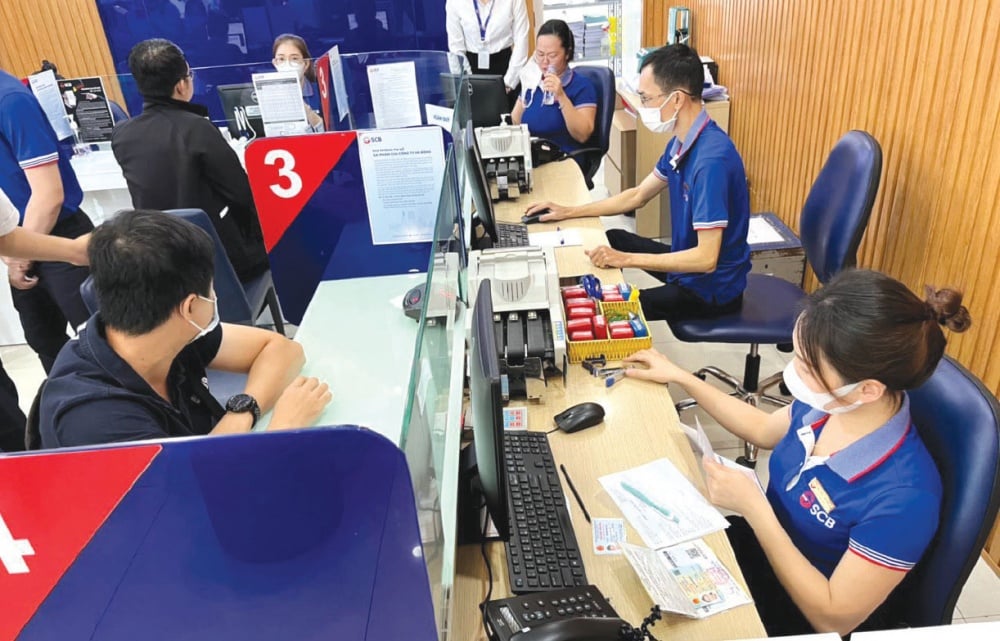













































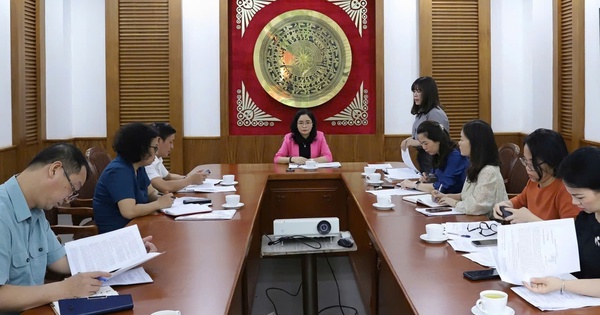


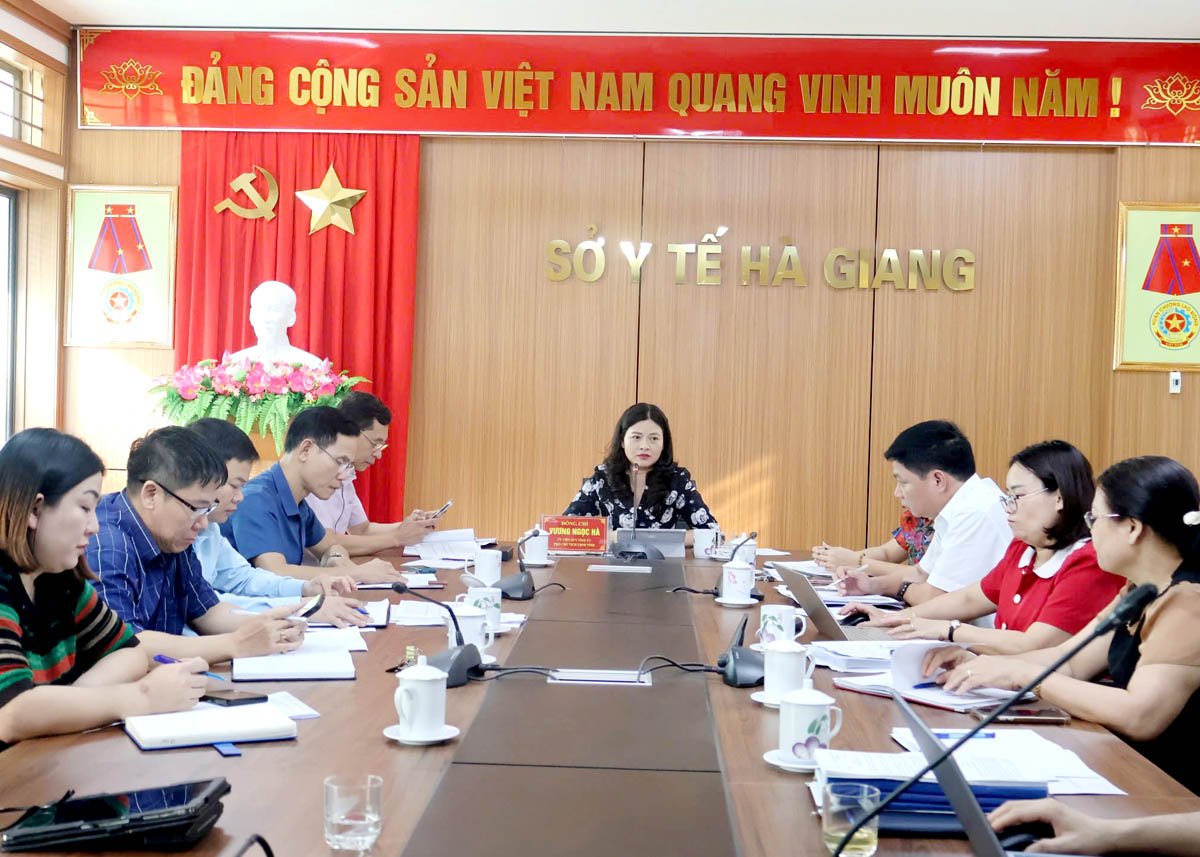
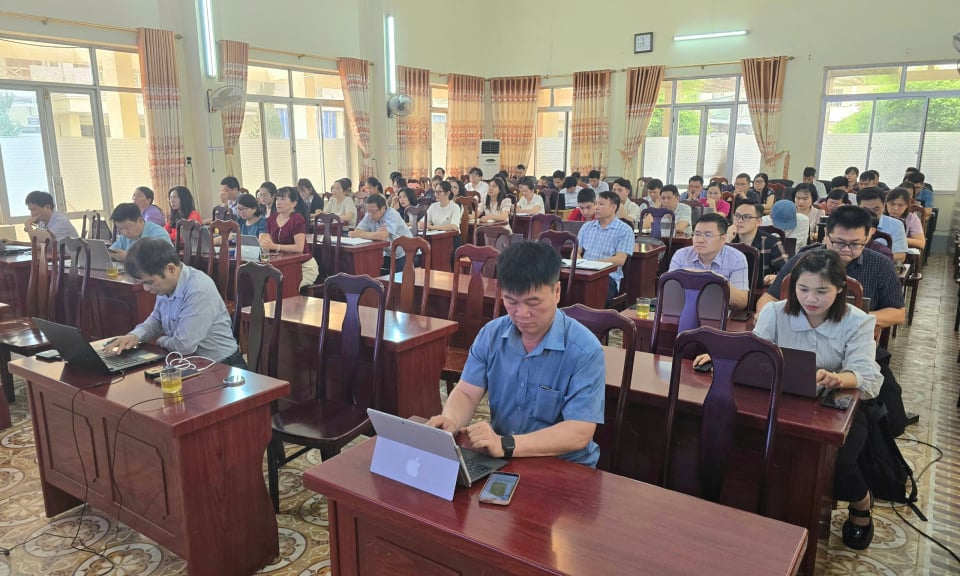


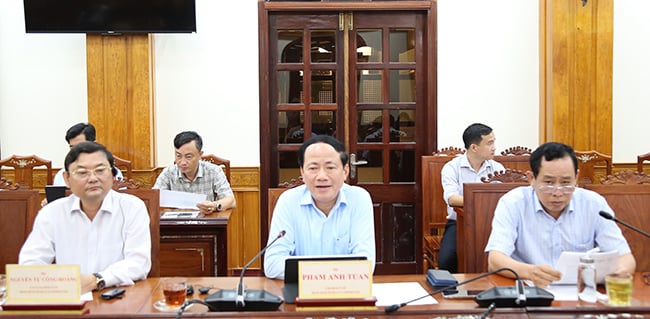
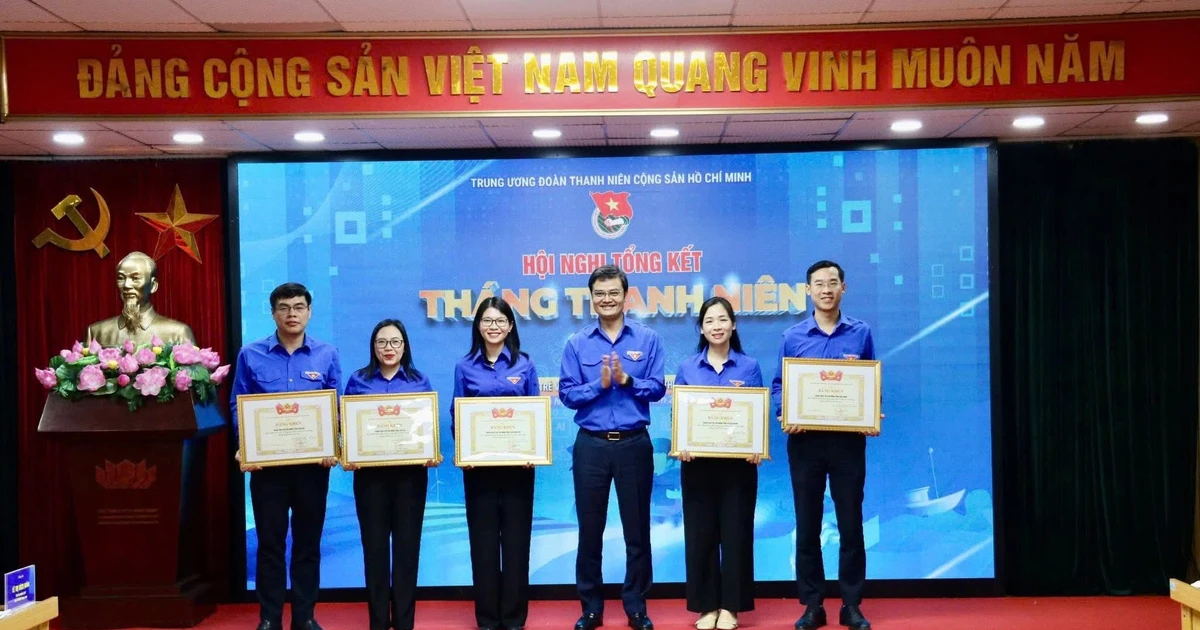











Comment (0)